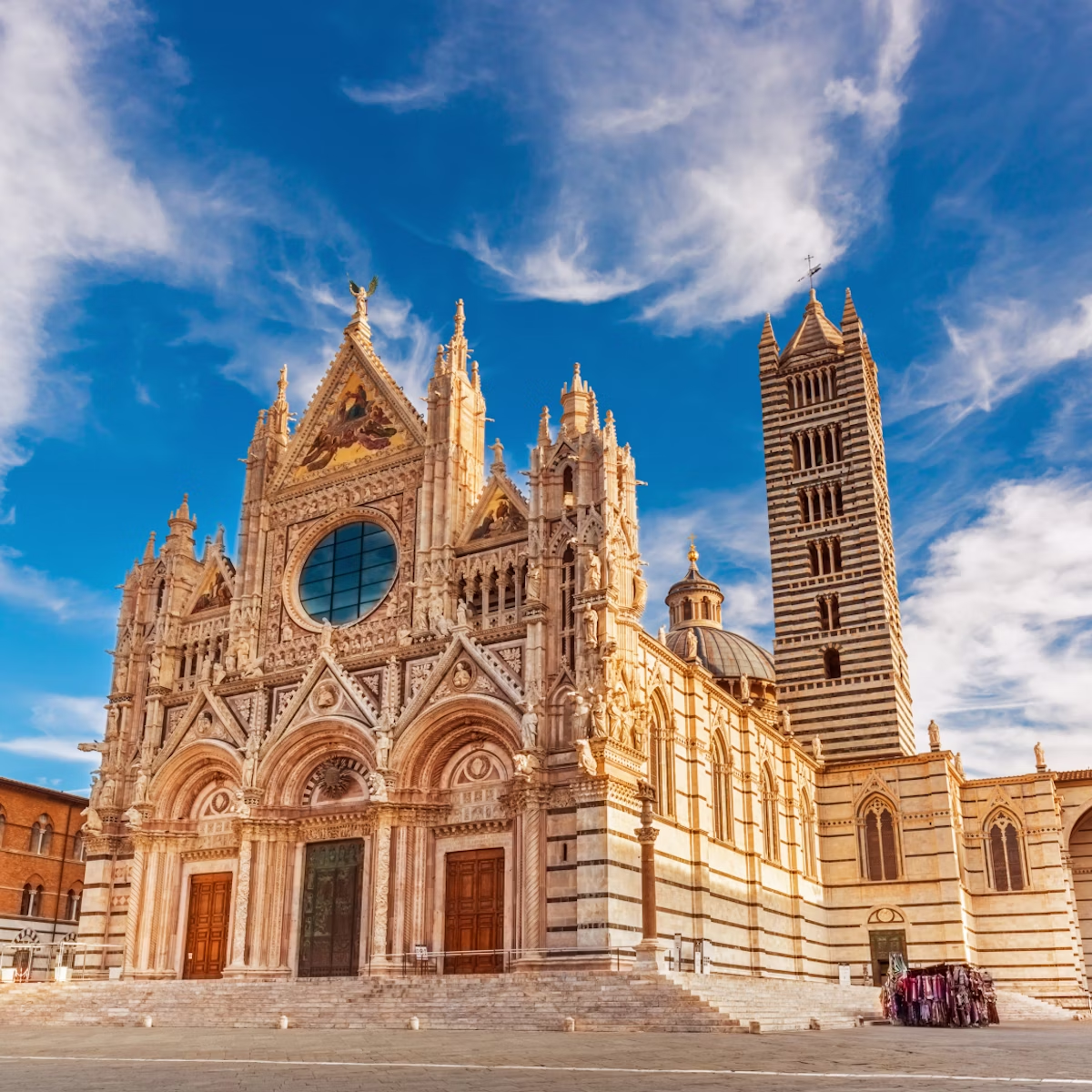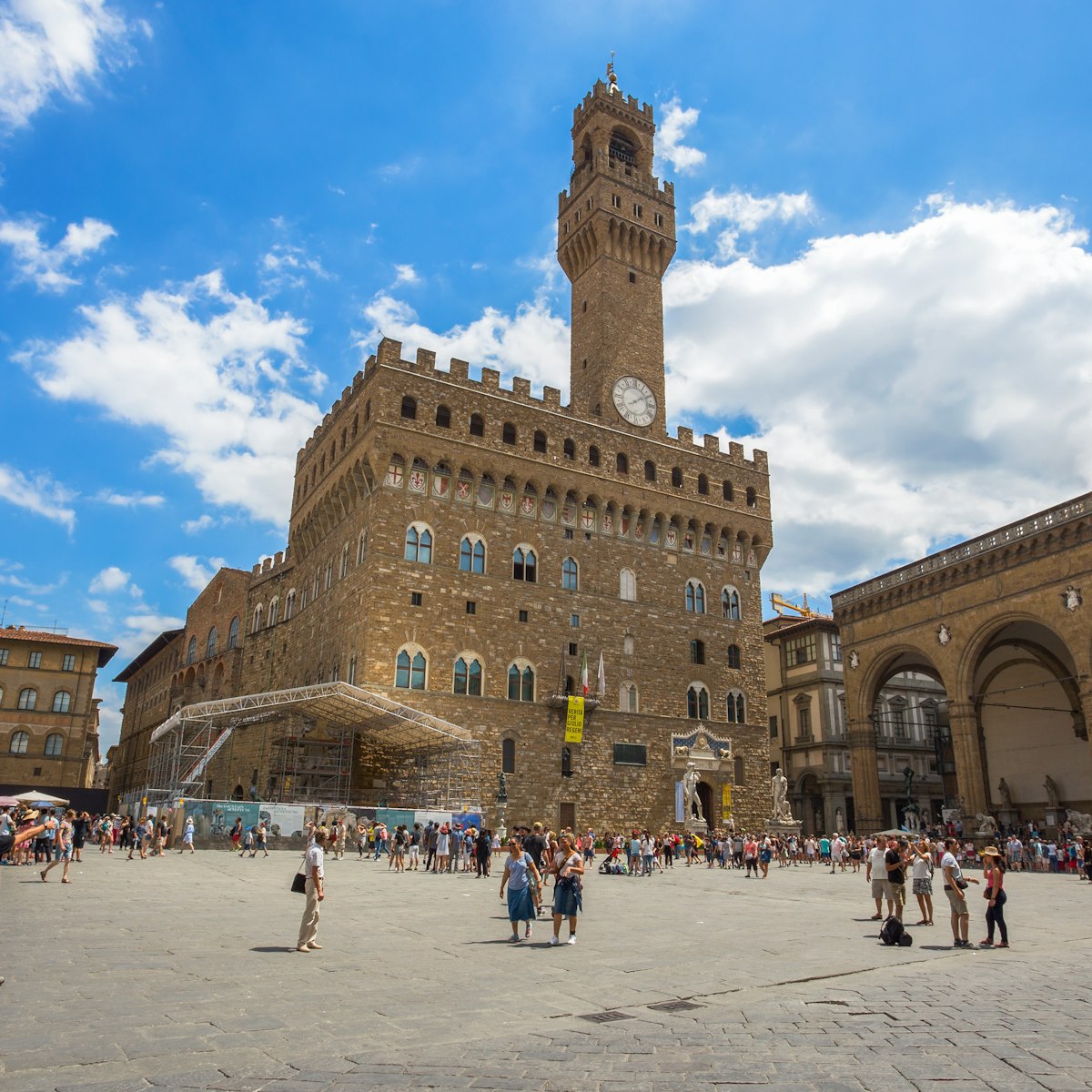The 13th-century Palazzo Comunale has always been the centre of San Gimignano's local government; its magnificently frescoed Sala di Dante is where the great poet addressed the town's council in 1299 and its Camera del Podestà and Pinacoteca (Art Gallery) once housed government offices – now they are home to wonderful artworks. Be sure to climb the 218 steps of the palazzo's 54m Torre Grossa for a spectacular view over the town and surrounding countryside.
The Sala di Dante (also known as the Sala del Consiglio) is home to Lippo Memmi's early-14th-century Maestà, which portrays the enthroned Virgin and Child surrounded by angels, saints and local dignitaries – the kneeling noble in red-and-black stripes was the podestà (chief magistrate) of the time. Other frescoes portray jousts, hunting scenes and castles. Gadget fans are likely to enjoy the augmented reality glasses that superimpose digital medieval characters over the frescoes; hire them from the gift shop (€5).
Upstairs is the Camera del Podestà with its meticulously restored and slightly saucy cycle of frescoes by Memmo di Filippuccio – in this morality tale the rewards of marriage are shown in the scenes of the husband and wife naked in the bath and in bed. On the other side of the staircase are rooms housing the town's small but charming pinacoteca. Its highlights include two large Annunciation panels (1482) by Filippino Lippi; a huge altarpiece (1511) by Pinturicchio; Madonna of Humility Worshipped by Two Saints (1466) and Madonna and Child with Saints (1466) by Benozzo Gozzoli; and an altarpiece by Taddeo di Bartolo (1401) illustrating the life of St Gimignano.







